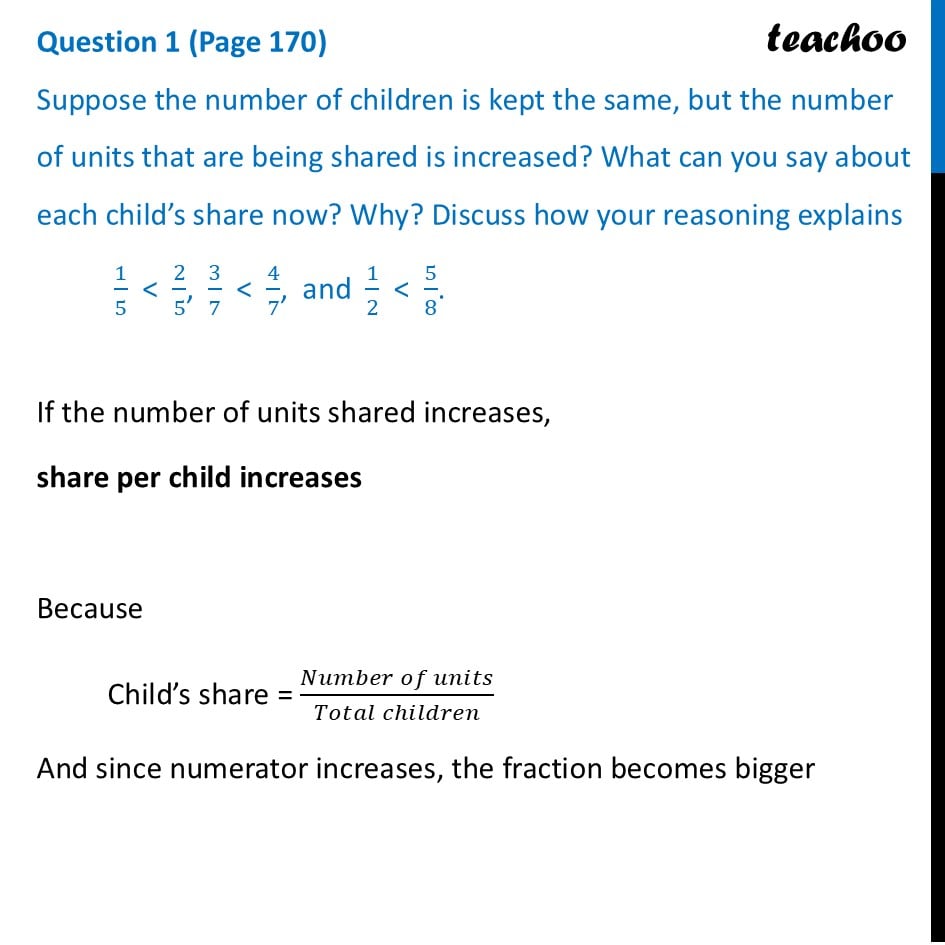


Question 1 (Page 170) - Questions - Page 168 to 172 - Chapter 7 Class 6 - Fractions (Ganita Prakash)
Last updated at September 18, 2025 by Teachoo
Questions - Page 168 to 172
Last updated at September 18, 2025 by Teachoo



🎉 Smart choice! You just saved 2+ minutes of ads and got straight to the good stuff. That's what being a Teachoo Black member is all about.
Question 1 (Page 170) Suppose the number of children is kept the same, but the number of units that are being shared is increased? What can you say about each child’s share now? Why? Discuss how your reasoning explains 1/5 < 2/5, 3/7 < 4/7, and 1/2 < 5/8.If the number of units shared increases, share per child increases Because Child’s share = (𝑁𝑢𝑚𝑏𝑒𝑟 𝑜𝑓 𝑢𝑛𝑖𝑡𝑠)/(𝑇𝑜𝑡𝑎𝑙 𝑐ℎ𝑖𝑙𝑑𝑟𝑒𝑛) And since numerator increases, the fraction becomes bigger Next part of our question is Discuss how your reasoning explains 1/5 < 2/5, 3/7 < 4/7, and 1/2 < 5/8 Now, to compare two fractions, We make denominator equal And if numerator is greater, that means fraction is greater That’s why 1/5 < 2/5 or 3/7 < 4/7 And, we can write 1/2 < 5/8 as 4/8 < 5/8 Note: You can also do this visually